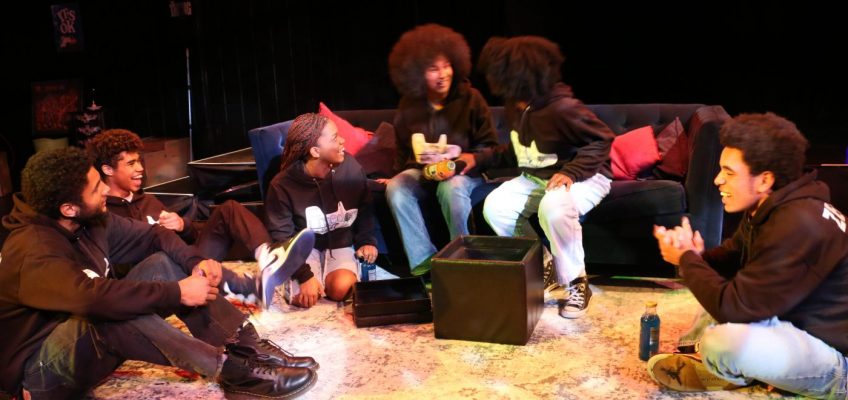Edward Lotterman
In 63 days we will vote in the most momentous presidential elections of most of our lifetimes. The underlying political fundamentals seem clear to many on both sides, and many voters likely have already made up their minds.
But, for those still weighing the options, a structured review of the two candidates’ economic proposals may help. That the economy is the key issue has been ballyhooed for months. Both candidates have advocated actions they would take.
But regardless of how attractive any of these proposals seem on the surface, voters should consider the following factors:
• Legislative feasibility — is there any chance of passage of any of these ideas by our dysfunctional Congress?
• Political divisiveness — how sharply is our nation split? Does any powerful bloc, even if small, oppose any measure? Does any gain advantage inordinately?
• Administrative lag — once passed, how long would it take to put the measures into operation? How long until voters see any real effects of their choice?
• Adjustment costs — how would households and businesses have to change their daily practices in response?
• Transaction costs — what new, perhaps unseen costs would have to be borne by someone because of the measure? For taxes, would this be the “excess burden” of cost to society beyond the tax paid.
• Fairness or justice — would the change make our divided society more just or more unjust?
• Financial market reaction — would adopting or implementing the new measure roil financial markets in our nation or globally?
Now, let’s start with a simple example, the exemption of service workers’ tips from income taxation, and weigh it against the above criteria. Given that both major party candidates support this, let’s assume congressional passage would be easy. Divisiveness would be near zero. Implementing the change would entail relatively small changes to tax regulations and forms. Employers and taxpayers could rely on updates to their payroll or tax return preparation software. Financial markets would not blink an eye.
Transaction costs, however, would be large. Creating a separate class of effectively tax-exempt earners would create large incentives to find ways to transform wages into tips. The current plague of payment device screens suggesting large tips in bakeries or for oil changes would burgeon. The IRS would struggle to stay ahead, and rich Wall Street brokers could somehow style their fees as tip income. Such distortions would impose “dead weight costs” on the efficiency of the economy, unperceived by the general public, but real nevertheless.
Now let’s weigh Democratic nominee Kamala Harris’ proposal to raise the child tax credit in the personal income tax from the current $2,000 to $3,600. This is popular with the public and could pass the House but perhaps not the Senate. As with the tip income exclusion, implementation would be easy. It is not divisive and would have little lag in seeing real effects. Household budgets would adjust smoothly to the increased net take-home pay.
There would be little drag on the economy. More importantly, it would move in the direction of returning individual income taxes to where they were 70 years ago, one that only a minority of households would pay. Contrary to 2012 GOP candidate Mitt Romney’s fretting about “only 47 percent of Americans paying taxes,” that number was even lower in much of the past. The $600 exemption per household member that prevailed for years meant that a single earner with a spouse and three children seldom paid tax. A large proportion of farmers fell into this group as well as workers earning median wages in manufacturing. There would be little change in excess burden. Most people would see it as just and financial markets would ignore it.
Those two are easy. But larger and more key proposals are not.
Harris has put anti-price-gouging laws at the center of her platform. Most economists, including me, think this one of the stupidest ideas to come down the pike in decades. However, we also know that thinking this is somehow “communist” is silly. Rather, it typifies the mercantilism that economics pioneer Adam Smith railed against and which continues to scourge the economies of many poor countries.
First, the measure is politically divisive. Odds of getting it through any Congress after this election approach zero. Looking at past history, including World War II, simply writing rules to get anywhere near accomplishing the anti-gouging goal without costly economic distortions would take months. A large bureaucracy would be needed to investigate violations, so it would require problematic ongoing budget appropriations.
This would be mirrored in the private sector as companies set up divisions to manage compliance. Time and money would be spent on litigation. Then, assuming all these pre-implementation hurdles are surmounted, there are after-effect unintended consequences that would hurt the consuming public. Shortages of goods would develop along with black markets. Opinions on fairness of justice would be sharply divided. And it is all intended to solve a problem that is disappearing. Annualized increase in Consumer Price Index inflation over the last quarter is 1.7% for all purchases and 1.3% for food.
Again, other considerations aside, the key drawback of an anti-gouging law would be the difficulty of really getting it operational before the end of Harris’ term in office. The measure is popular in polls of the general population, but experience shows opinions would quickly diverge once in operation. All this is largely moot because the chances of passage and enactment are low indeed.
Now let’s look at one of Republican Donald Trump’s signature ideas. About the only positive thing to say about Harris’ anti-gouging plan is that it isn’t as nutty as Trump’s proposal to impose 10% tariffs on all imports and 60% on those from China. The revenue, he suggests, might even be used for a complete substitution of personal income taxes.
Chances of Trump’s proposed tariffs actually getting passed through any Congress, even one with GOP majorities in both houses, are even lower than Harris’ pet measure. In his first term, Trump was able to impose some tariffs using loopholes in overall trade laws created by Democrats largely to force GOP presidents to limit imports from Japan. But Trump’s wholesale uprooting of 90 years of trade policies and institutions could not be done by executive order.
Some in the public do support his tariff boosts in the abstract. But as realization of the magnitude of impacts becomes apparent, opposition would grow. As with the Smoot-Hawley tariff a century ago, other nations would retaliate. Inflation would rise, the world economy would shrink.
Adjustment costs would be huge. U.S. export sectors, especially agriculture, medical technology, heavy ag and construction equipment and airplanes would be hit hard. Even if domestic production of raw materials and finished goods currently imported had a miraculous revival, prices of nearly all merchandise would soar. Yes, the Federal Reserve could step in, assuming economist Milton Friedman’s argument that a central bank can smother price rises with extremely tight money — but the cost would be extreme, a 1930s-style fall in output and rise in unemployment. The poor would suffer more than the rich.
And then there are the side-on impacts: Financial markets would fear this measure as Dracula fears sunlight and the Holy Cross. Big money donors to GOP candidates would dry up if the measure were even introduced. The GOP would quickly come to heel and legislation would be strangled in the Senate and perhaps the House. But markets around the world would remain jittery.
This gets us about halfway through the Trump and Harris agendas. Look for more next week.
Related Articles
Real World Economics: The give and take of city tax plans
Real World Economics: The Fed can only do so much
Real World Economics: Central banks’ practices are on a perilous path
Real World Economics: Prosperity has a price, and a cost
Real World Economics: Depend on the security of the bond market
St. Paul economist and writer Edward Lotterman can be reached at stpaul@edlotterman.com.




